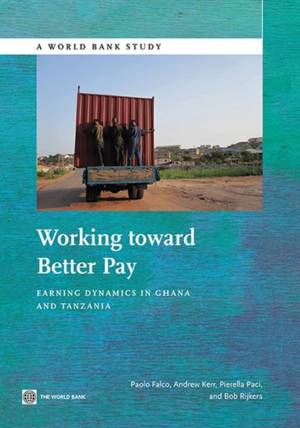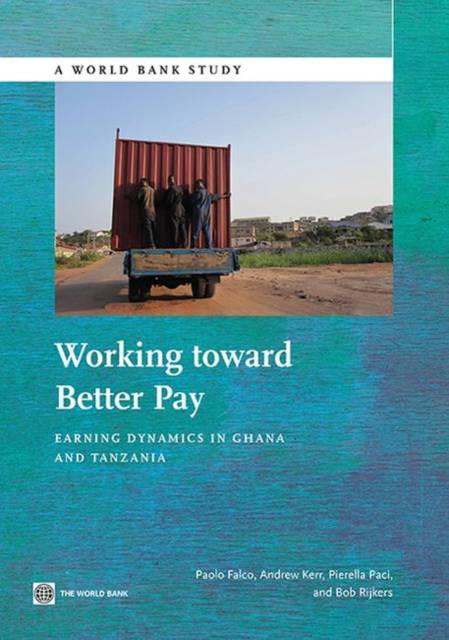
Bedankt voor het vertrouwen het afgelopen jaar! Om jou te bedanken bieden we GRATIS verzending (in België) aan op alles gedurende de hele maand januari.
- Afhalen na 1 uur in een winkel met voorraad
- In januari gratis thuislevering in België
- Ruim aanbod met 7 miljoen producten
Bedankt voor het vertrouwen het afgelopen jaar! Om jou te bedanken bieden we GRATIS verzending (in België) aan op alles gedurende de hele maand januari.
- Afhalen na 1 uur in een winkel met voorraad
- In januari gratis thuislevering in België
- Ruim aanbod met 7 miljoen producten
Zoeken
Working Toward Better Pay
Earnings Dynamics in Ghana and Tanzania
Paolo Falco, Andrew Kerr, Pierella Paci, Bob Rijkers
€ 42,45
+ 84 punten
Omschrijving
Improving the returns to labor for low-paid workers is a key policy challenge, especially in low-income countries (LICs) where earnings increases are the single most important source of poverty reduction and an important engine of shared prosperity. Yet, the understanding of individual earnings dynamics remains limited. The small--but growing--body of empirical literature on the factors leading to larger and faster pay increases points to strong persistence in earnings over time. However, it remains unclear to what extent this is due to differences in individual endowments rather than to the fact that being in low-paying jobs itself undermines future earnings prospects, and to what extent determinants of earnings vary across types of activities and sectors. The knowledge gap is particularly large for LICs due to the limited availability of reliable panel data. This study uses unusually rich longitudinal data from Ghana and Tanzania to identify engines of, and barriers to, earnings and earnings mobility. It examines the relative role of individual endowments--such as gender, age, and skills--and characteristics of the job, but also focuses on the role of job switches--for example, moves into and out of self-employment. The analysis also zooms in on the drivers of transitions between low-paying and high-paying jobs and addresses questions such as whether being low paid is a transitory or permanent phenomenon, and whether it has a scarring effect on an individual's employment prospects. The extent to which earnings dynamics differ for women and young adults is also discussed in detail. Tanzania and Ghana provide a particularly relevant context in which to examine these issues and the cross-country comparison helps shed light on the institutional factors that promote labor market mobility and entrepreneurship. The audience for this report is broad: it is an important read for policy makers, academics, and development practitioners interested in reducing poverty and promoting shared prosperity in Ghana and Tanzania. However, its relevance spans well beyond the two countries analyzed to include all developing countries where self-employment in small-scale activities accounts for a very large proportion of all employment.
Specificaties
Betrokkenen
- Auteur(s):
- Uitgeverij:
Inhoud
- Aantal bladzijden:
- 96
- Taal:
- Engels
- Reeks:
Eigenschappen
- Productcode (EAN):
- 9781464802072
- Verschijningsdatum:
- 19/06/2014
- Uitvoering:
- Paperback
- Formaat:
- Trade paperback (VS)
- Afmetingen:
- 178 mm x 254 mm
- Gewicht:
- 185 g

Alleen bij Standaard Boekhandel
+ 84 punten op je klantenkaart van Standaard Boekhandel
Beoordelingen
We publiceren alleen reviews die voldoen aan de voorwaarden voor reviews. Bekijk onze voorwaarden voor reviews.









